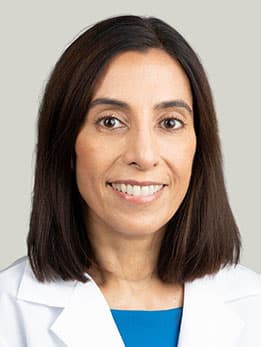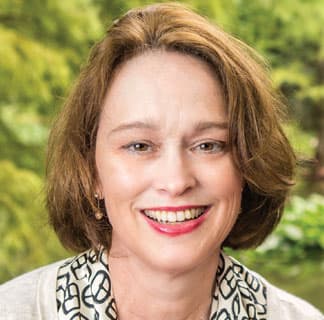Large colon polyps found during a routine colonoscopy removed without surgery

Ron McCormick is known for being punctual. So when his physician advised him to get a colonoscopy around the time he turned 50, he followed doctor's orders. Although he had no family history of colon cancer, McCormick scheduled the procedure for two days before his birthday.
"It turns out that if I had put if off, the consequences could have been serious," said McCormick, a business administrator for the Salvation Army.
During the routine screening at a local hospital, McCormick's gastroenterologist identified eight polyps. Although his polyps were benign, it was necessary to remove them to prevent development of colon cancer over time. The doctor successfully took out six colon polyps, but told McCormick he needed a specialist to remove the two that were large in size.
"Because this was really important, I felt that I should go to the best place in town," McCormick explained.
A family friend recommended the University of Chicago Medicine and McCormick, a Hyde Park resident, didn't hesitate. He scheduled an appointment with Uzma Siddiqui, MD, Associate Director of the Center for Endoscopic Research and Therapeutics (CERT).
For patients like McCormick, Siddiqui typically performs a colonoscopy with endoscopic mucosal resection (EMR). During an EMR, a physician injects fluid underneath a polyp to gently lift it off the wall of the colon and then removes the polyp tissue using a snare device and cautery. This minimally invasive technique can be done as an outpatient procedure and has a lower risk of complications than surgical removal.
On the day of the procedure, Siddiqui sat with McCormick to explain the process. She noted that one of the polyps was large, and both were located on the right side of McCormick's colon. When gastroenterologists remove large polyps — especially on the right side — there is a small risk of perforation and bleeding (not only during the procedure but up to one week later). She also mentioned that if the polyps appeared to be cancerous, then surgery would be recommended.
This procedure can be done as an outpatient procedure and has a lower risk of complications than surgical removal.
McCormick initially felt nervous, but Siddiqui impressed him by having a plan for each possible scenario. "Dr. Siddiqui and her nurses made me feel very comfortable," McCormick explained. "I thought to myself, these people have got it covered."
The procedure took just over two hours to complete. Siddiqui removed the two polyps, one of which was in a hard-to-reach fold below McCormick's ileocecal valve, separating the large intestine (colon) from the small intestine. She also identified and removed several additional small polyps.
"Partial removal, extensive biopsies, and even tattooing the lesion can cause significant scarring and make subsequent removal either difficult or impossible," Siddiqui emphasized. "The benefit in Mr. McCormick's case was that the polyp was left intact, increasing the likelihood for complete endoscopic resection."
The final pathology results revealed that the polyps were benign and none had developed into cancer. McCormick was in the clear.
McCormick returned to work after his procedure without any issues. He was at home relaxing and watching movies the following weekend when his phone rang.
"Dr. Siddiqui checked in to see how I was doing," McCormick recalled. "I was impressed that she took the time to reach out personally.
"After this, I will never take my health for granted," McCormick said. "I'm thankful I came to a world leader like the University of Chicago Medicine. Going forward, I will continue to seek out the best care."
Colorectal cancer screening and diagnosis
Physicians at UChicago Medicine take a proactive approach to cancer screening — including timely colonoscopies and prep — to catch disease at an earlier, more treatable stage.
Learn more about colonoscopy screening and prep
Uzma Siddiqui, MD
Dr. Siddiqui is a gastroenterologist with expertise in interventional endoscopy. Her clinical focus is on gastrointestinal oncology and endoscopic ultrasound (EUS).
See Dr. Siddiqui's physician profile
